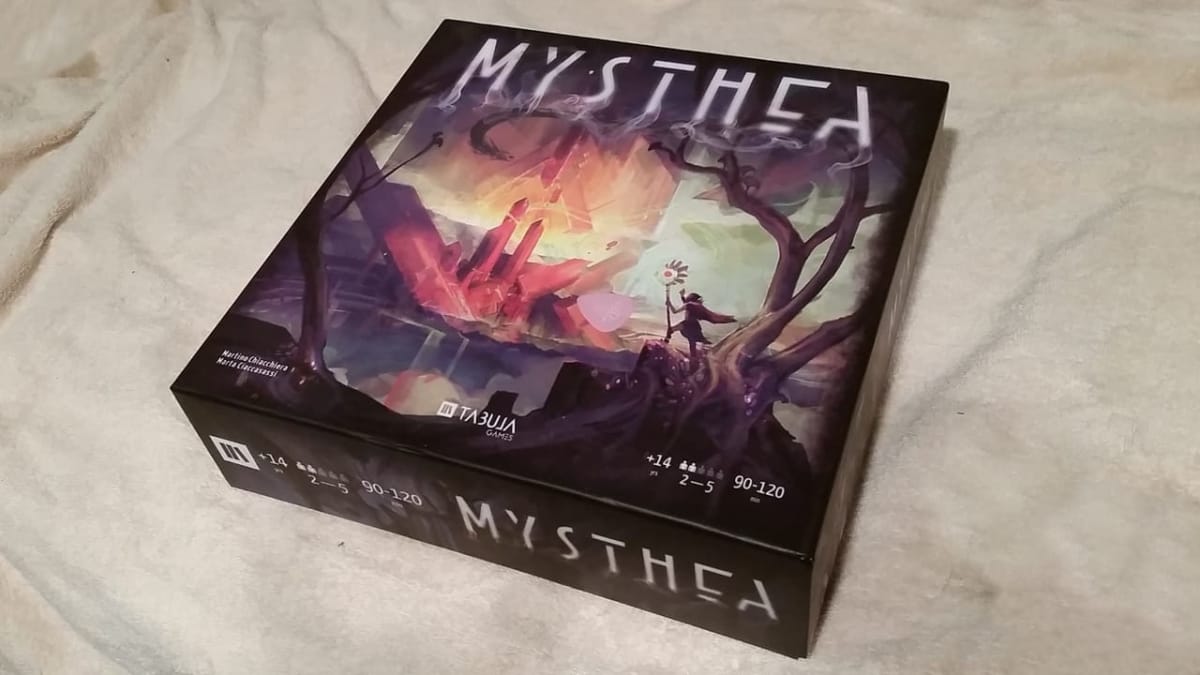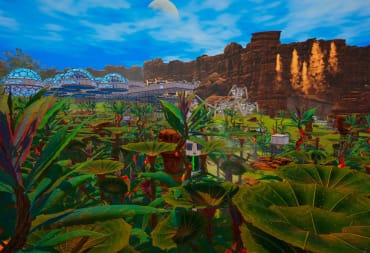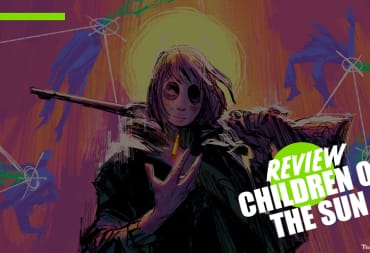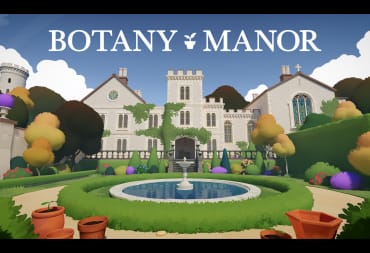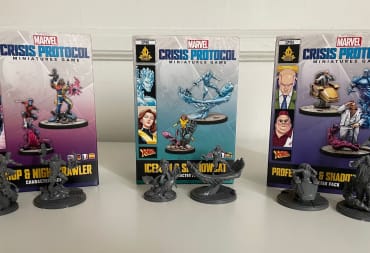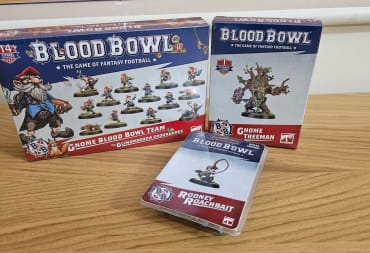More than three years ago, I previewed a card game called Jewels. It wasn't all that mechanically complex, but I had a lot of fun playing it. Not too long after, the same people behind Jewels would start releasing much more complex games. And here we are in my Mysthea review, exploring one of these larger-than-life titles.
Mysthea is big. You're going to need a minimum of a square meter (or roughly 3' x 3') of table space, and even then it will be a tight fit. There is a main board, smaller boards that sit atop the main board, a sideboard, and personal boards for each player. Suffice it to say, this is the sort of thing that you're going to need some room to play.
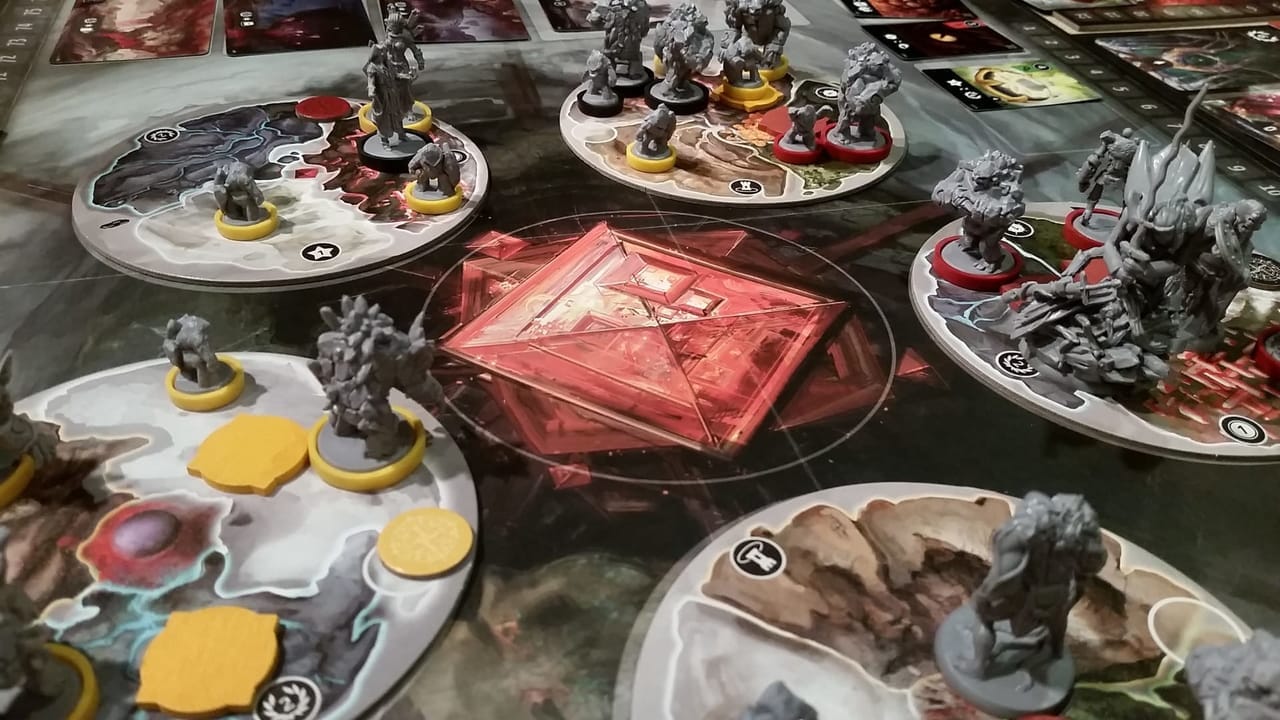
Mysthea Review — A World of Moving Parts
The rules of Mysthea aren't terribly complex, but this game sure does have a lot of moving parts. The board features five floating "islands", each of which has three regions, and each region can be one of five different types. Players are trying to control as much of the map as possible while also fending off terrifying monsters. This is largely accomplished by moving your champion around, and by deploying troops, golems, and fortifications to hold your ground.Come combat time, you will hopefully be able to overpower the enemy by having more Strength Points (determined by the number and type of units you have) than your opponent. If not, you are liable to lose some troops that may have taken you a good chunk of time to build up.
Fighting monsters will happen at the end of each of the game's three Eras and can be entirely avoided as long as you don't share the same island with them. If you do end up on an island with them at the end of an era, it becomes a simple matter of your combat power versus their combat power with the larger number winning, just like PvP combat. Player versus player combat works much the same, although it's a little more involved. You have to expend your "Artefact" and can't fight players until you recharge it again.
In either case, losing a battle means that you'll lose troops equivalent to the difference in power. It is very important to plan your moves carefully in Mysthea, and that's where cards come in.
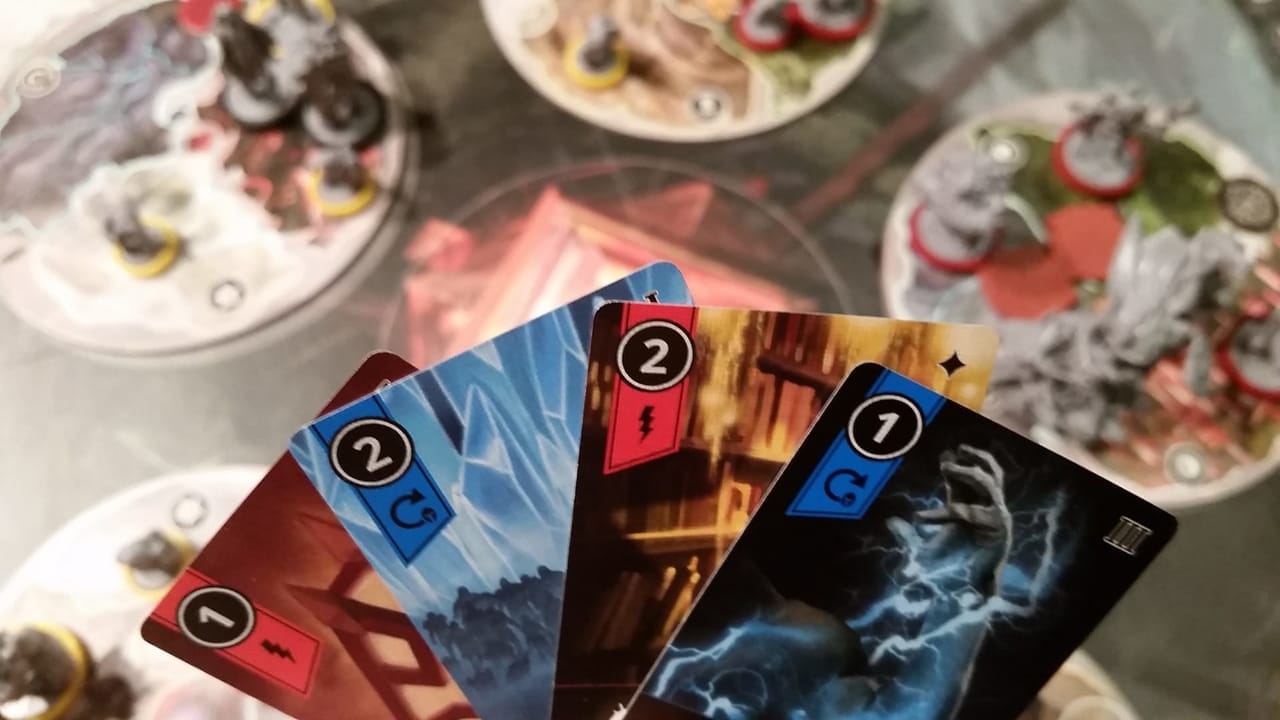
Mysthea Review — It's In The Cards (and Board)
Mysthea has quite a few cards. It's far from the number I've seen in some other tabletop games, but you're going to be doing a bit of shuffling as you play. One of the more important decks combined the region cards, storm card, and monster card(s); these are used to determine events and victory point allocations at the end of the round. This is reshuffled at the start of an era, but it's the only deck that is likely to be doing any moving and shaking throughout the game.Primarily, a player's concern is with the command cards. These cards are used in one of two ways; generating command points and activating their effect, or being attached to your player board as a permanent upgrade. You are going to build up a hefty hand size as you play, easily reaching 15 or 20 cards by the end of the game.
I enjoy Mysthea as a game, but I am not at all fond of the command cards. You see, all of these cards have the relevant numbers on them as you would expect. There's also some pretty nice card art. What isn't on these cards is a description of their effects — and every single one of these cards (all 80 of them!) has a unique effect.
I simply do not understand why the command card's effects were not printed on the cards themselves. I've seen some Yu-Gi-Oh! and Magic: The Gathering cards with practically half a page of tiny writing on them, and I don't think a single one of the effects were wordy enough that it couldn't have fit in a small typeface. This was genuinely a baffling design choice and a constant source of frustration for my tabletop group. Here is one of the longer ones as an example:
While this card is on your Player Board, whenever one of your Troops Travels, it may carry one of your other units that has not yet traveled this turn. The carried unit must start in the same region as your Troop.Command card effects can range from "add 1 point of damage to these units" to more complex, conditional effects like the one noted above. This means that you are going to be constantly referring to the rulebook or a quick reference guide, and that slows down gameplay in an already slow-paced game.
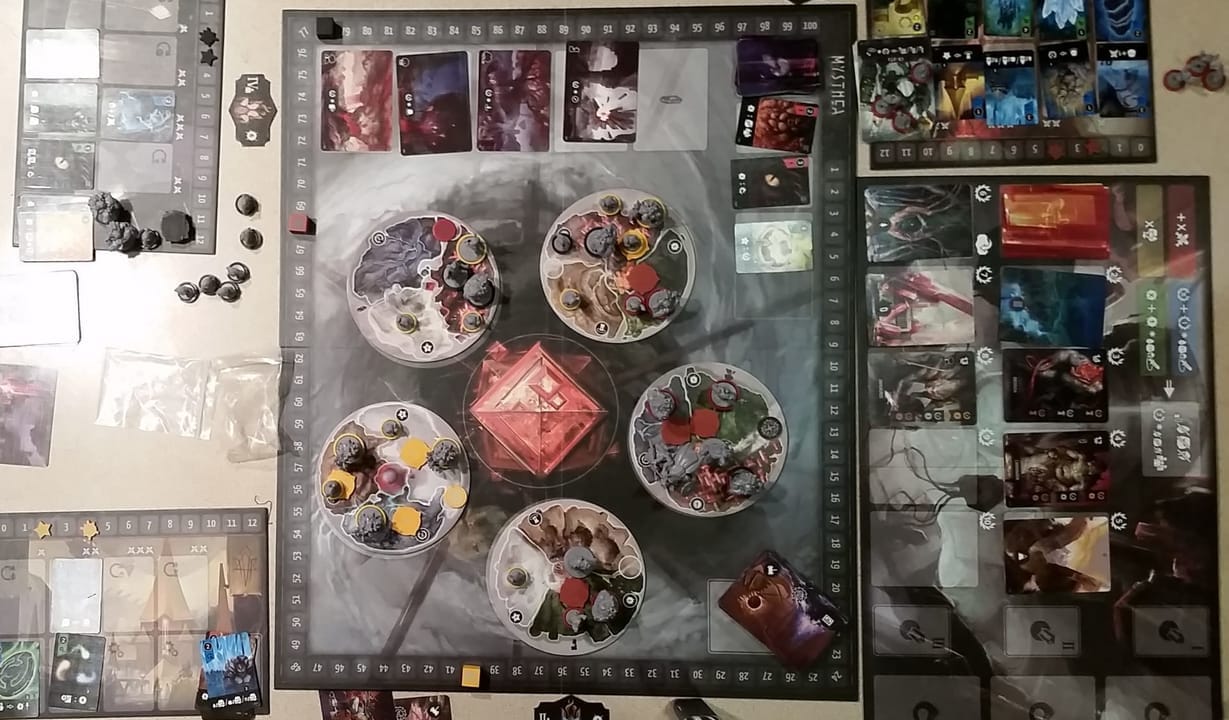
Mysthea Review — Wider Variety
As soon as I got my hands on Mysthea, my mind flashed back to Tabula Games' previous title Barbarians: The Invasion. After playing Barbarians for some time, I was disappointed to find that combat was really the only viable way to victory despite the many other ways to gain victory points. In the course of my Mysthea review, I discovered (much to my delight) that combat was not the sole factor in winning. Acquiring territory is the core of the game, and the command cards are what determine how you use that territory.Heck, there are even mechanisms to convert one type of point (like energy gained from meditation) into victory points simply by expanding certain command cards. You don't have to pillage the land to win in Mysthea, although it certainly doesn't hurt.
Ultimately, the game goes thusly: deploy your first units onto one of the islands and start expanding out from there. Plop more troops and golems down to get more territory, and hope to goodness that you don't end up fighting a monster at the end of an era (which can take 12+ strength points, and most units only give 1–2 points). Use your command cards, resources, and special abilities to get the most victory points, and you'll win.
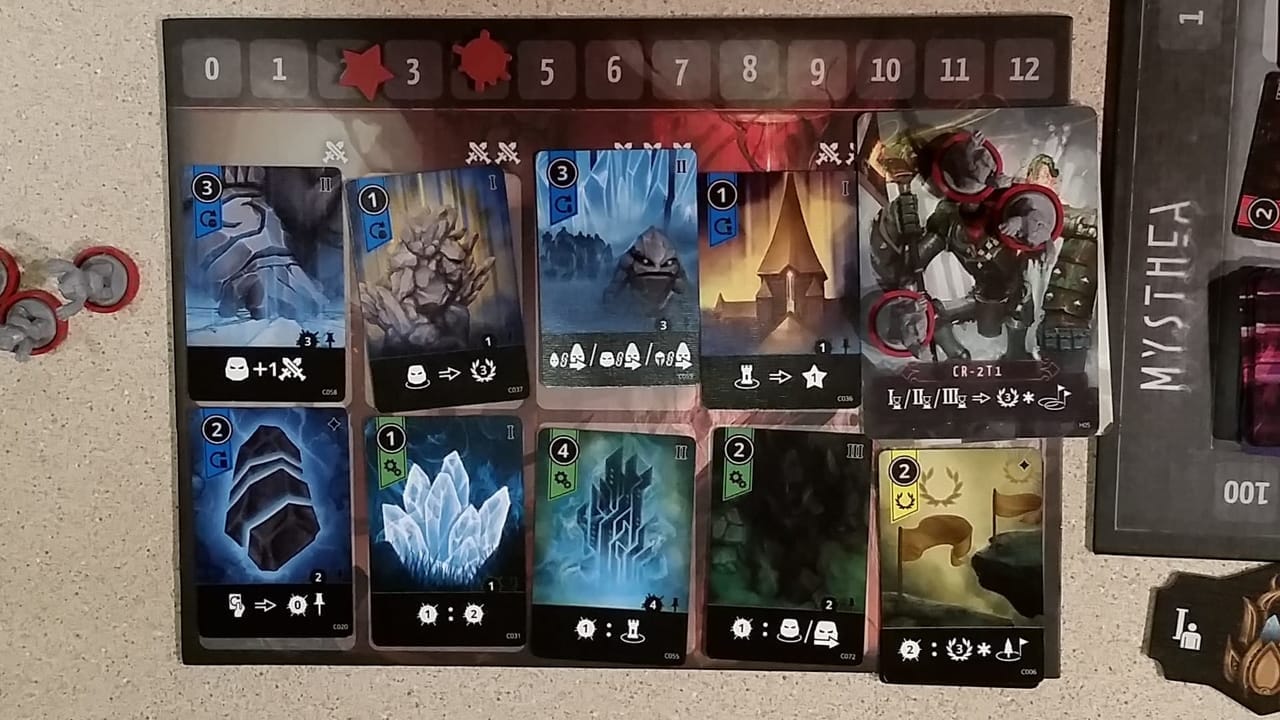
Mysthea Review — Combined Arms
Tabula Games has always come up with pretty interesting stuff, and Mysthea is no different. You're not buying one game insomuch as you're buying one and a half games.You see, Tabula Games has an upcoming tabletop title called Icaion that was successfully funded on Kickstarter. One of the hooks is that you can take some of the bits of Icaion, combine them with some of the pieces in Mysthea, and you have a whole new game. Buying both effectively gives you three different games.
It certainly makes sense from a lore perspective as these are all part of an overarching universe. I have played games with expansions where you can add in more cards, boards, or pieces, but the only other tabletop game I recall playing that lets you combine two standalone titles into one is Munchkin. It's an interesting way to get more value out of your games.
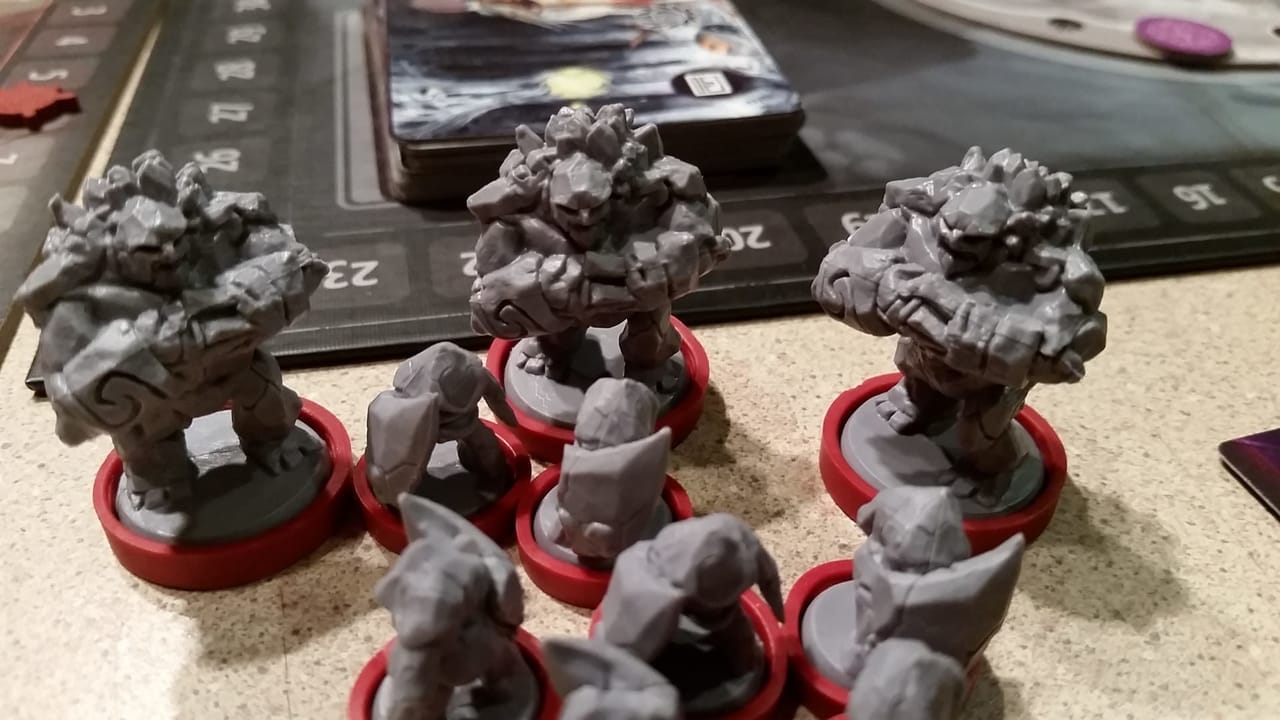
Mysthea Review — The Bottom Line
Mysthea, to me, is a game that mixes a lot of simple mechanics in somewhat more complex ways. The process of going through a turn takes a little while, and I really do think that this problem is compounded by continually having to refer to the command cards descriptions in the rulebook or quick reference guide.Our first game took nearly double the 90–120 minutes listed on the box to play. That's not too unusual, but subsequent games still took our group much longer to complete. I get the sense that it is going to take a while for you and your tabletop group to really get their heads around this game. That said, it's a lot of fun regardless of how long it might take you to play it.
What I do appreciate is the improvement in the variety of strategy as compared to Tabula Games' last title. You can focus on combat power, beating up other players in PvP and handily winning the monster fights at the end of every era to earn victory points. You could, instead, use a combination of command cards to gain victory points from various special effects. Most likely, you're going to end up with some mix of these styles.
Some tabletop games can be picked up pretty quickly and Mysthea is, in my opinion, not something that is learned so easily. If you're looking for something that you can really sink your teeth into over the course of several weeks or months, then this may very well be the game for you.
Get This Game if:
- You like longer, more involved tabletop experiences.
- You enjoy a new spin on Risk-style territory control.
- You want to take the first steps into a wider universe with some pretty cool lore.
Avoid This Game if:
- You're short on table space.
- You prefer simpler, shorter games.
Review Summary
Have a tip, or want to point out something we missed? Leave a Comment or e-mail us at tips@techraptor.net
